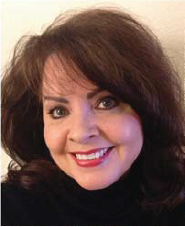Symposium Spotlight: Thinking outside the box with outpatient CDI queries

RN, BSN, CCDS, CCS, CRC
Editor’s note: Rebecca Robbins Willcutt, RN, BSN, CCDS, CCS, CRC, and Mary M. Rogers, CRC, CPC, COC, CCS present “Is Your Outpatient Query Process Compliant? Thinking Outside the Box: Building an Effective and Sustainable Ambulatory CDI Program,” on Day 1 of the ACDIS Symposium: Outpatient CDI. This year’s Symposium takes place November 8-9, at the Hilton Orlando Lake Buena Vista—Disney Springs area. To see the complete agenda, click here. To register, click here.
ACDIS: What is the focus of your ambulatory efforts in CDI?
Willcutt: The primary focus of our ambulatory program, at this stage, is capture of documentation which affects the hierarchical condition category (HCCs) code assignment and physicians Risk Adjustment Factor (RAF) scores, some quality performance, requests for additional information (RAI), as well as education for physician documentation and billing for their own evaluation and management (E/M) code assignment.
In terms of HCCs and RAF scores, we focus on our risk-adjusted patients and certainly hope that our efforts ensure an accurately reflection of the patient’s medical story, as well as serve as a driver in our population health management. Currently our focus is more clinic/accountable care organization based.
ACDIS: What do you see as the difference between the terms “ambulatory” and “outpatient” being used to describe CDI efforts in these non-traditional settings?
Willcutt: “Ambulatory” is probably just a subset of the big umbrella. You know, it’s funny, because we have a point-of-entry program in our emergency department (ED), which, within the industry is generally considered “outpatient” CDI but is housed within the inpatient CDI department. I have no doubt this program will expand to cover outpatient components like the ED E/M billing, but right now we are focused on getting those inpatient diagnoses documented at the get-go, so we can establish an accurate level of care at the time of the admission.
CDI is almost insidious, the way it weaves and entwines itself throughout the entire organization because there seems to be a need for individuals who are both clinically and business savvy, who can think outside the box and predict what’s coming around the bend.
ACDIS: What trends are you seeing in the ambulatory CDI movement?
Willcutt: Really the biggest trend is the focus on HCCs, RAF scores, and ACOs. Do I think ambulatory CDI is going to explode? Heck, yes! You’re going to see CDI in the outpatient cath labs, GI labs, same day surgery, infusion clinics, outpatient denials, etc.
Even now our inpatient CDIs will grab a few SDS cases to take a quick look at the operating room notes to see if something was done that moves the case to the inpatient-only procedure list. It’s difficult because you are cross walking CPT codes to ICD-10 PCS codes, but every once in a while, you get a prize.
ACDIS: What is the most challenging part of expanding into the ambulatory setting from the traditional inpatient CDI program?
Willcutt: Finding the right staff. There is a lot of physician education required and many avenues within which to provide that education. CDI professionals can offer documentation information either by physician group, by institute, by clinic setting, or shoulder-to-shoulder with an individual physician.
Finding a potential hire who has the right personality coupled with extensive coding knowledge of individual specialties, along with HCC knowledge is a must.
The CDI staff person may be scheduled to provide education on HCCs, but I can guarantee you that is the tip of the iceberg—once you are standing face-to-face with the physicians the questions start coming.
For me, as a director, finding the right staff is my biggest stressor because there are so many things to consider other than an individual’s knowledge-base and I know the first thing my boss is going to ask me is “what about our vacant spots?”
ACDIS: If you could live in any decade other than this one what would it be and why?
Willcutt: I swear I always thought I was an old soul because I love opulent fabrics, tapestries, castles, Italian statuary, rigid decorum, romanticism. . . If I could wear a ballgown to work, I would. But, then again, I really like cleanliness so dragging the hem of my gown around in dirty streets, fighting lice and fleas, and jostling around in a stifling hot carriage is not my cup of tea either.
Alternatively, I’m probably in the final third of my life and I’m a bit panicky about that because I want to see what is coming around the bend. I grew up tethered to the wall by a telephone, no computers, no dishwasher, and only three television channels. What has happened in the past 30 years is mind-blowing. We have information at our fingertips, minimally invasive surgeries, face transplants, and genomes. We can grow a human ear on a mouse via stem cells and watch bilateral amputees running marathons. So maybe I’d like to live in 2060 or 2090. I just want to see everything that is going to happen in the next 50 years. Flying cars, robot housekeepers, facelifts via a magic wand, artificial intelligence. It’s going to be “The Jetson’s” and “Star Trek” combined. I can’t wait to teleport.
